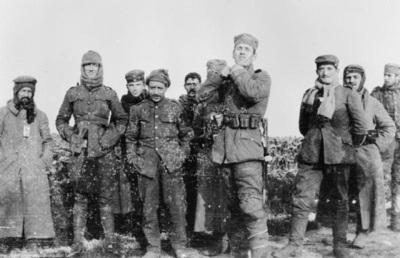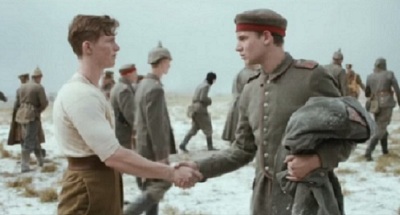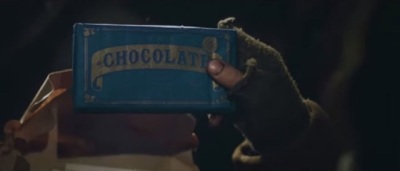WWI Christmas truce inspires British grocer's seasonal ad

LONDON (Christian Examiner) -- Rarely does a company choose to use a re-creation of a wartime event in its advertisements, much less in its Christmas marketing spots.
Yet that is just what a British grocer did this year, and modern-day soldiers will benefit from the promotion.
Sainsbury's, the third largest supermarket chain in the United Kingdom, created an extended commercial based upon the World War I Christmas Truce, a temporary cessation of the fighting along areas of the Western Front on Christmas Day 1914.
Pope Benedict XV called for all sides to lay down their arms that day. While the governments declined to heed the pope's call, some soldiers did and the result was nothing less than a Christmas miracle. Slowly German and British soldiers crawled out of the relative safety of their respective trenches, according to accounts cited on History.com.
Sainsbury's poignant ad, which has been heavily criticized by some for exploiting a historical event for commercial purposes, portrays the gritty reality of war, punctuated by the sudden and otherworldly sound of Silent Night being sung by German and English soldiers as Christmas Day dawned.

For a brief time the wind-swept, snow-covered no-man's land between the opposing forces' bunkers became a make-shift soccer field and, while not shown in the grocer's ad, the respite from conflict provided troops an opportunity to retrieve the bodies of their fallen comrades.
As the sounds of war returned to the land, the soldiers returned each to their own lines to take up arms, preparing for the resumption of hostilities and the death and destruction that was sure to follow in the ghastly "war to end all wars."

The Sainsbury's ad, tagged with the hashtag "Christmasisforsharing," was first shown on Nov. 12th. Proceeds from the sales of a Belgian Milk Chocolate bar, the likeness of which is shown in the ad after being graciously shared, will benefit The Royal British Legion, a veterans' relief organization.
While some assert the advertisement romanticizes the events of December 25, 1914, to the point of being untruthful, Sainsbury's responds on its website: "While our ad is a fictionalised version of the events that took place, we've made every effort to ensure that the details are as authentic as possible.
"Every aspect of the production, everything from the depth of the trenches to the insignia on the uniforms is historically accurate. Even the hard biscuit we see the British soldier eating was baked to the original recipe," the statement continues.
Britain's Advertising Standards Authority, a regulatory board that oversees the country's marketing industry, received complaints about Sainsbury using the World War I incident for marketing purposes. Yet after exploring the matter, the British press reported officials decided not to launch an investigation.
Most viewers find the ad, inspired by the Great War's 1914 Christmas truce, well done, powerful and worthy of recommendation; despite its public relations purpose. The video has been viewed nearly 16 million times on YouTube.
The centerpiece of the advertisement is a soccer match, the details of which have been mostly lost in the intervening years.
Yet, in remarks captured in an interview some 30 years ago, a former British Army soldier said troops did engage in what loosely could be called a match on the battlefield near Wulverghem, Belgium
In a CNN piece, Ernie Williams, the WWI vet who was there in 1914, said it was more a "melee" and less a game.
"The ball appeared from somewhere, I don't know where, but it came from their side - it wasn't from our side that the ball came," he recalled during a 1983 television interview. "They made up some goals and one fellow went in goal and then it was just a general kickabout. I should think there were about a couple of hundred taking part."